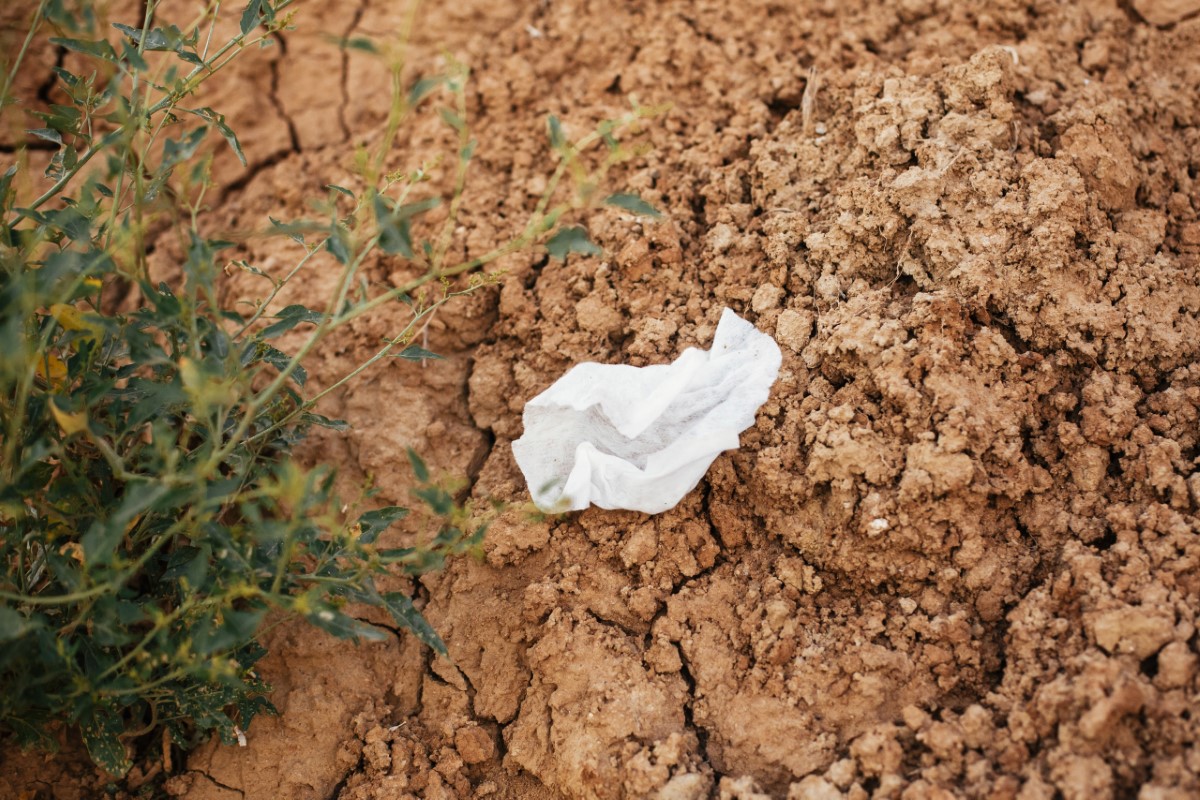
Wet wipes litter our beaches
Along with plastic bottles, wet wipes are one of the most frequent causes of environmental pollution on coasts and in the sea.
Every year in September, a big litter clean-up takes place on Britain’s beaches. The highly regarded British Marine Society (MCS) carries out a large-scale clean-up operation on the beaches of Scotland through to Wales. According to the BBC, the marine conservationists have detected a new potential threat to the beaches of the United Kingdom: wet wipes.
From the first to the latest clean up, the amount of wet wipes found on the beaches has increased by as much as 50 percent. Unfortunately, a great number of consumers are unaware that their wipes contain plastic. Once used, the wipes are often carelessly thrown away or disposed of incorrectly, such as flushing them down the toilet. Wet wipes that contain synthetic fibers, such as in certain baby wipes products, disintegrate with great difficulty - if at all - and thus pollute our drains, waste waters, and environment. On average, thirty-five wet wipes were collected by voluntary helpers every kilometer of the beach during this year’s little clean-up. Compared to previous years, this year saw also a 150 pieces increase in the amount of plastic waste collected per section of the beach, amounting to 2,500 pieces per kilometer this year.
According to the MCS, the dirtiest beaches are located in Wales, followed by England. The cleanest shores are to be found in Scotland, where the amount of plastic waste is only slightly lower. To tackle the problem of wet wipes, the MCS recommends disposing of them in waste bins rather than down the toilet.

